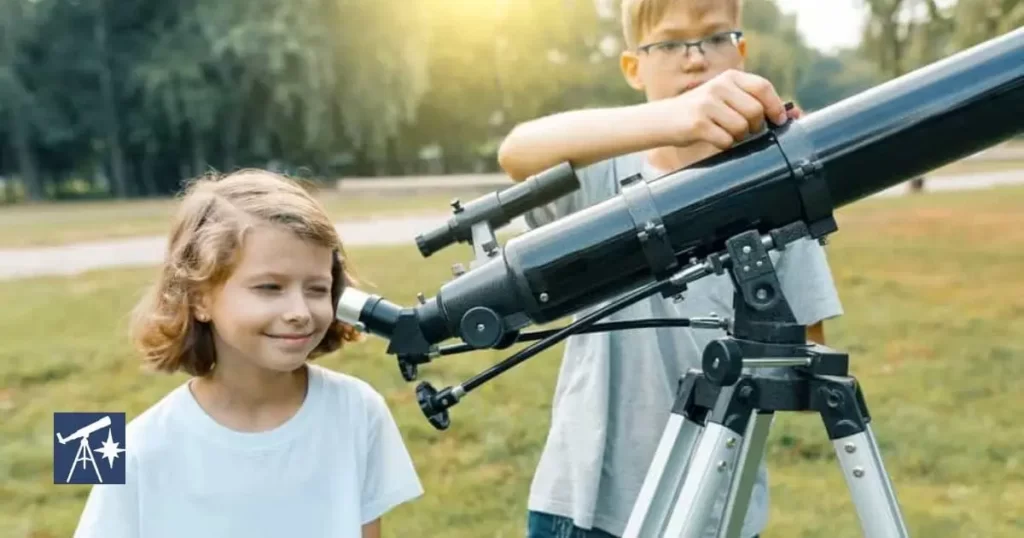Buying a kid’s telescope will encourage your child to learn about the expanse of the universe, nature, math and more. Here’s why!

Children are naturally curious and so introducing them to a telescope will help them form a broader understanding of the world around them.
1. The expanse of our universe
A telescope will open your child’s thinking to new perspectives from getting to know the expanse of the universe.
For example, they will learn about constellations and asterisms, the unique features of the Moon, observable features within the Milky Way, and the enormity and complexity of our Universe.
There are some amazing facts to get to know about the night sky.
They will get an idea of just how small, the planet they live on, Earth, is compared to the size of the cosmos.
2. Orientation
With stargazing, they will learn how to read sky maps and get to know the names and features of distant objects. They’ll learn to orientate themselves without needing a compass and about degrees measurements in the sky, using such knowledge to find celestial objects of interest.
3. Care of an instrument
They will get to learn how to take care of instrumentation. I’ve put together some basic know-how in my article on how best to care for your telescope.
4. About nature
Some telescopes double for astronomy and terrestrial pursuits. With these, they’ll learn about the sky above and the nature around them.
They’ll be able to watch the behaviors and characteristics of animals and plants in the landscape.
Especially early morning or late afternoon when birds and animals are most active they’ll get opportunities to learn.
5. Math
They’ll practice calculations, for example, by working out the magnifying power of eyepieces.
6. Develop imagination
A telescope will teach them a whole new set of horizons and support their fascination and curiosity. It will remain a toy for some, but even as a children’s toy telescope, it will help develop their imagination.
What else…
If there is one available, get them involved in a local amateur astronomy club or similar, as they will learn the most from the experience of others.
Check out my article with 5 popular examples and great recommendations for a kid’s telescope
